News feed
Ádám Varga: I can do now what I used to think was impossible
2024. 07. 12.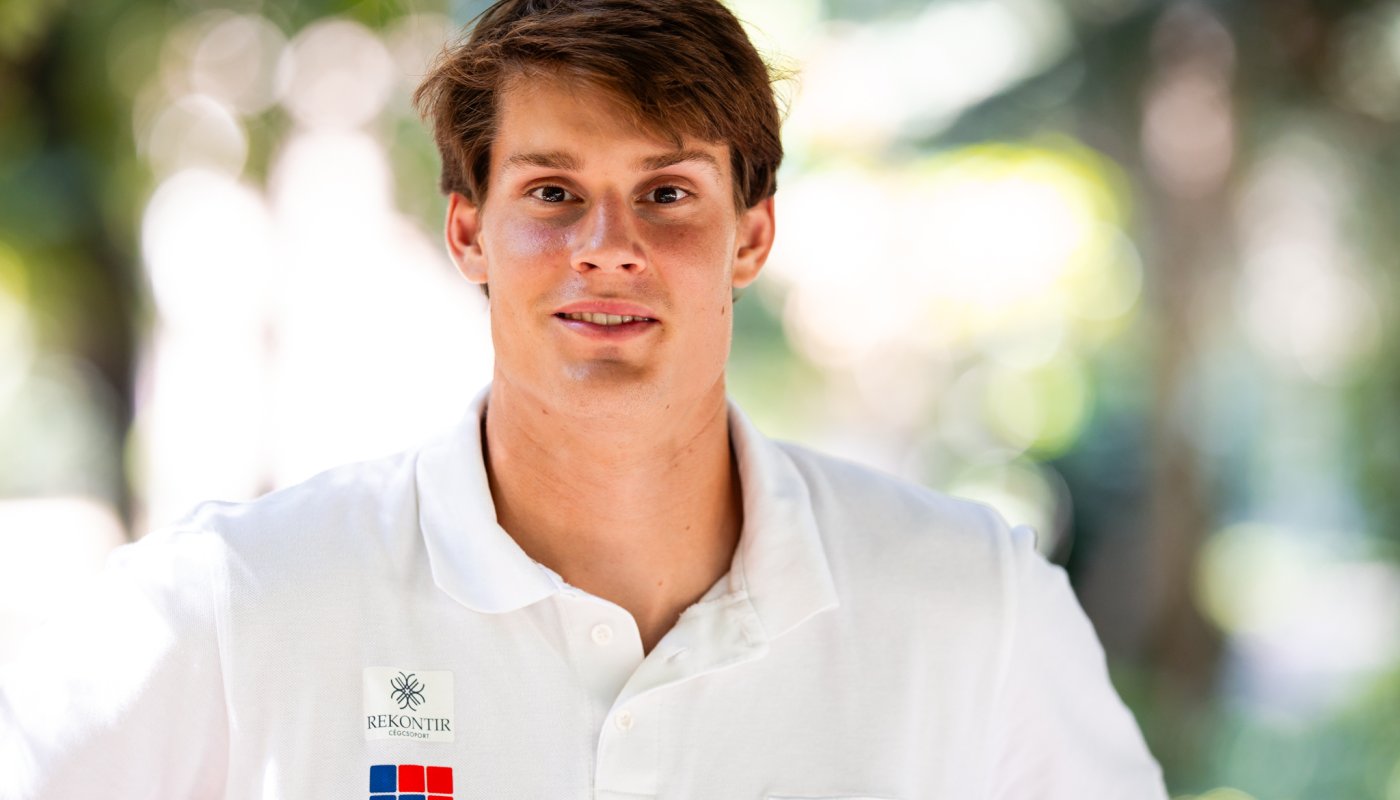
Having won a silver medal three years ago, Ádám Varga is now preparing for his second Olympics, while studying Physics at the BME’s Faculty of Natural Sciences. At the European championship in June, he won the men’s K1 500 sprint, finished second at 5000 metres, and will compete in Paris in the 1000 metre race. We asked him whether he felt more pressure at the Olympics or at a comprehensive exam.
How do you handle the hassles of media appearances?
Quite well, but I would like to cancel some of them, say in the autumn, when I get really busy.
How is the exam period?
That’s behind me now. It wasn’t very demanding, because I enrol only in a few subjects each term due to my sports activities, so I hardly have any exams. I've just had my comprehensive exam in experimental physics, and I did great.
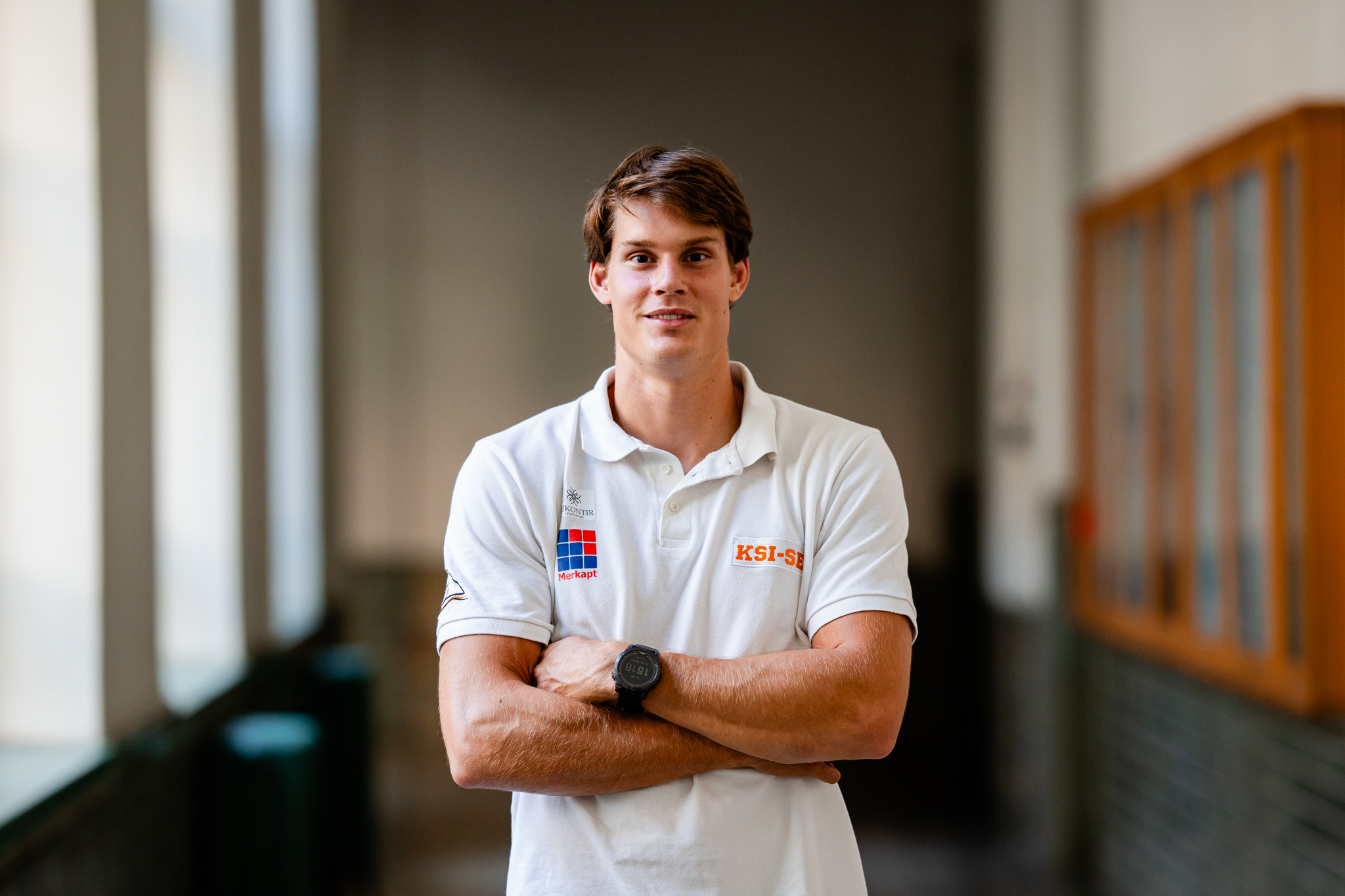
How did you feel at the end of the European championship?
Really well. It was a little easier on me in the sense that it lasted a day or two longer than the World Cups, and I had to compete in fewer races in comparison, because I could directly make it to the finals in the K1 500. In addition, there was only one race per day, so I could always have at least a full day to rest. So I enjoyed that it wasn’t so hectic, and I’m glad it went well both in terms of the results and the feeling. It is also important that this happened in front of the home fans.
Now that the kayak-canoe races are less than six weeks away, how much time does an athlete think about the Olympics?
Of course, it is part of my everyday thought, but it is not good if that’s what is always on your mind because it’s a big enough stress factor and you’d better not do anything under stress. Still, this is what I’m preparing for, I go down to train every day, I always think about how I could do better, maybe what I should do differently the next day, how to eat and rest. In other words, even if it is not the Olympics specifically, the fact that I am preparing for a very important race is in constantly on my mind.
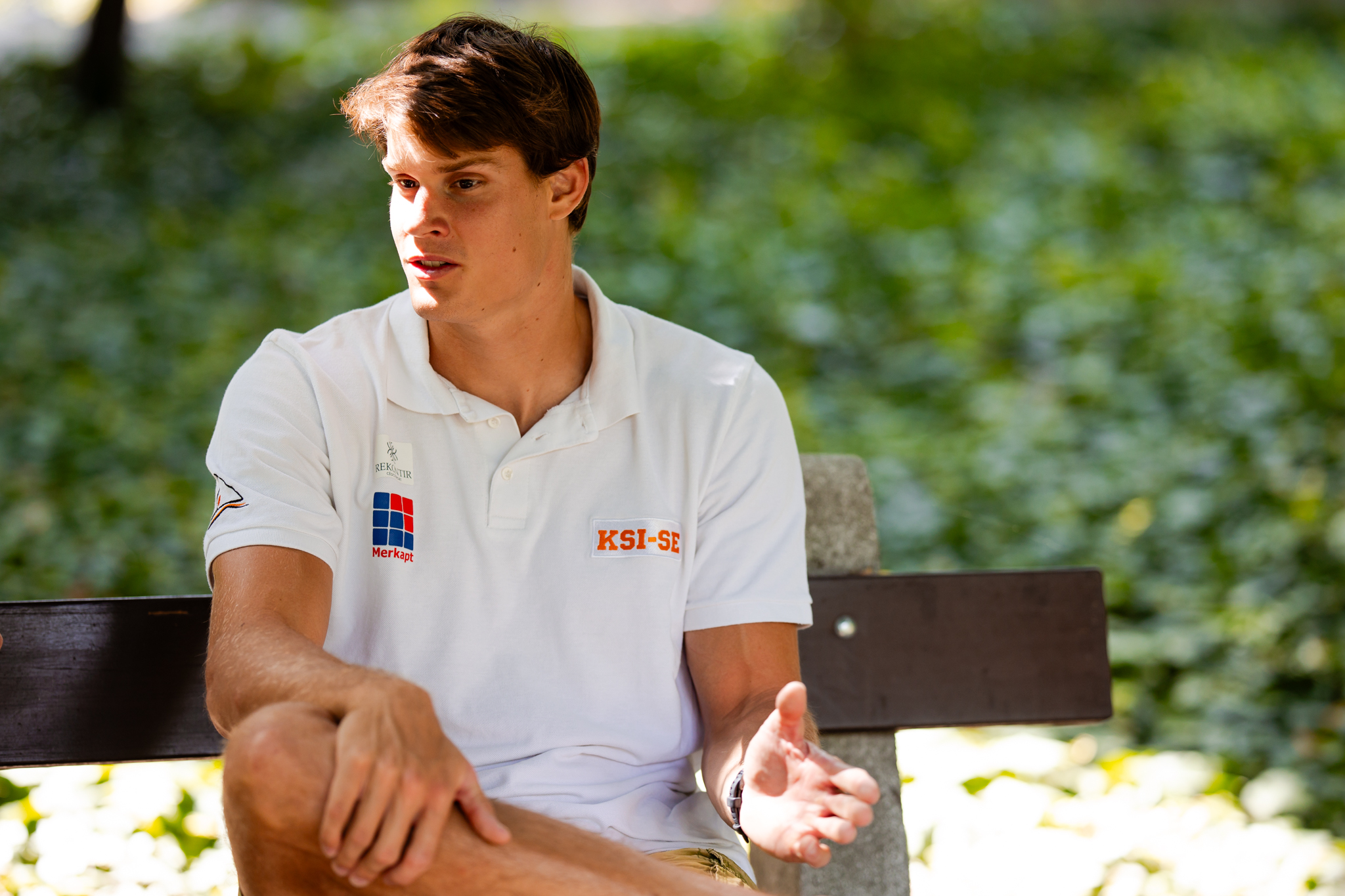
And does this stress compare to a comprehensive exam?
The two are very different. I’m not nervous, actually I’ve never been, but I’m always anxious before a race because I know it’s going to hurt a lot, and I wonder if I can go through the pain I’ve been able to. The race cannot be repeated, you can only wait for one year. On the other hand, the exam does not hurt, and if I fail, I can try to improve. Let’s not forget that in Hungary there are strong expectations concerning our sport, as we are very successful in the international arena, so weaker performance is highly visible. If someone gets a bad grade at the university, it won’t be in the newspapers the next day. Besides, the exam result depends only on me, I don’t have to beat others, and the only variable is what exam question I get. Once I’ve learned something, I won’t suddenly forget it.
What does the Olympics mean to you?
When I watched the games as a child, it never occurred to me that I might be one of those athletes one day, let alone prepare for a second after I was able to bring home a medal from the first. So for me, the Olympic Games mostly mean that I can do now what I used to think was impossible, and that’s a weird feeling. Athletes are totally aware that the Olympics are much more prestigious in the eyes of the public than any other competition. We usually have an important race in every season, but in comparison to the Olympics everything else seems irrelevant; for example, now the European Championship functioned as a kind of rehearsal, even though for some it was the main race of the year.
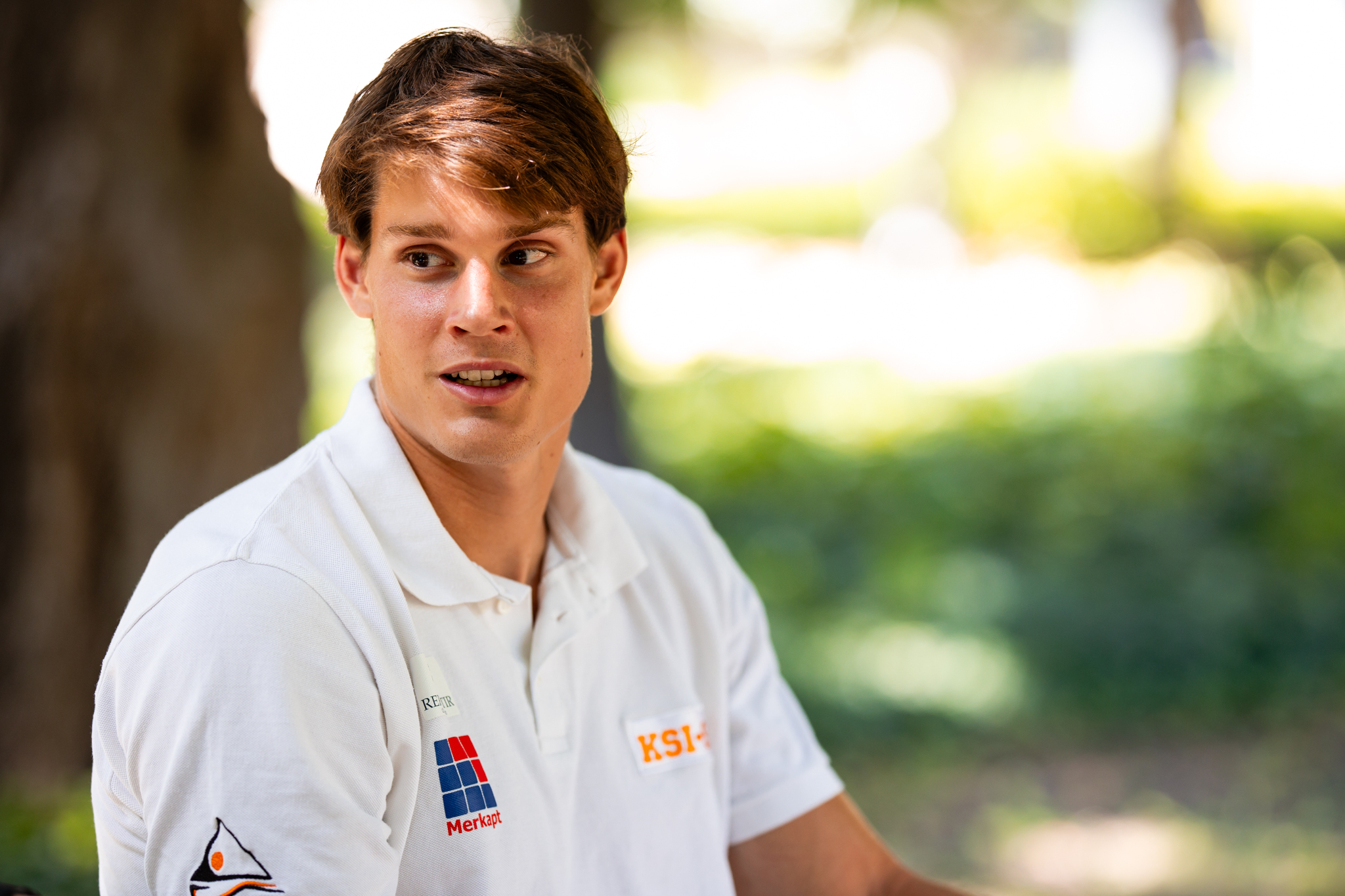
And what was your experience like at your first Olympics in Tokyo?
It was different from our international competitions in that we had to travel very far, and with the preceding training camp it was unusually long so that we could adapt to the time zone and temperature difference. Then, due to Covid, there were no spectators at all, and we couldn’t leave our quarters. And for us, it was also strange that, since there are far fewer races than at a Euro or World Cup, the Hungarian kayaking and canoeing team was also smaller. It was more like a family, but it also meant that the tension was higher, and there were no relaxed afternoons.
Paris will be different in many ways.
Yes, and I already know the track as I have already been there twice. I have almost only positive experiences from Paris.
You said this term meant less workload at the university. Did you arrange it so on purpose?
Of course, sports are so important to me now that even my university studies cannot take away too much energy within a set time period, even though I love and am interested in what I study. It would be nice to earn my degree as soon as possible, but it can’t happen at the expense of my training, so I enrol in fewer classes when there are a lot of races, typically in the spring. In the autumn, I try to progress a bit faster.
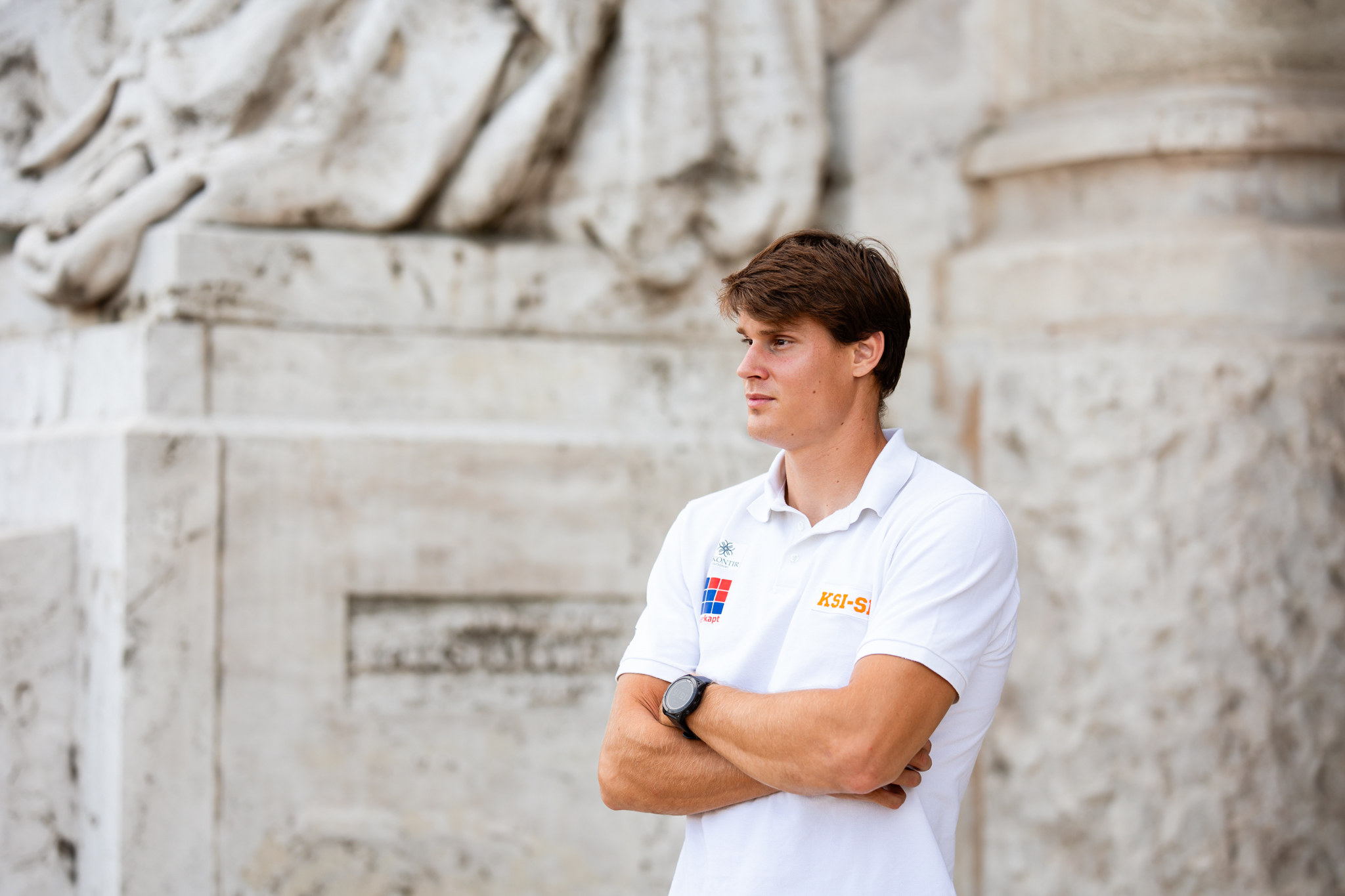
Did it occur to you to skip the term completely before the Olympics?
Of course it did, but I just thought that if I didn’t, my future self would thank me. I think I made the right decision; I did not feel I was overreaching myself, and I successfully completed all my subjects.
Yet, many people probably think that even with such a reduced workload, it is not possible to pursue your university studies while engaged in professional sports. How would you convince them?
Mostly with the fact that I did succeed. But it’s very important to love them both, otherwise you couldn’t do it.
Are you thinking about a master degree program?
I would definitely like to do it, but I don’t know which way I would go yet.
And do you already have an idea of the career path you would choose with a degree in physics in your hand?
I don’t know that yet, either. The way I see it now, I’d like to do kayaking as long as I can, while trying to make progress at school, which will probably take a long time with the MSc degree; then we’ll see what happens. I often get the question what a physicist really does, and it is difficult to give an exact answer to this, because there is a wide spectrum ranging from researcher to applied engineering work. But that’s a long way off for me to start thinking about it.
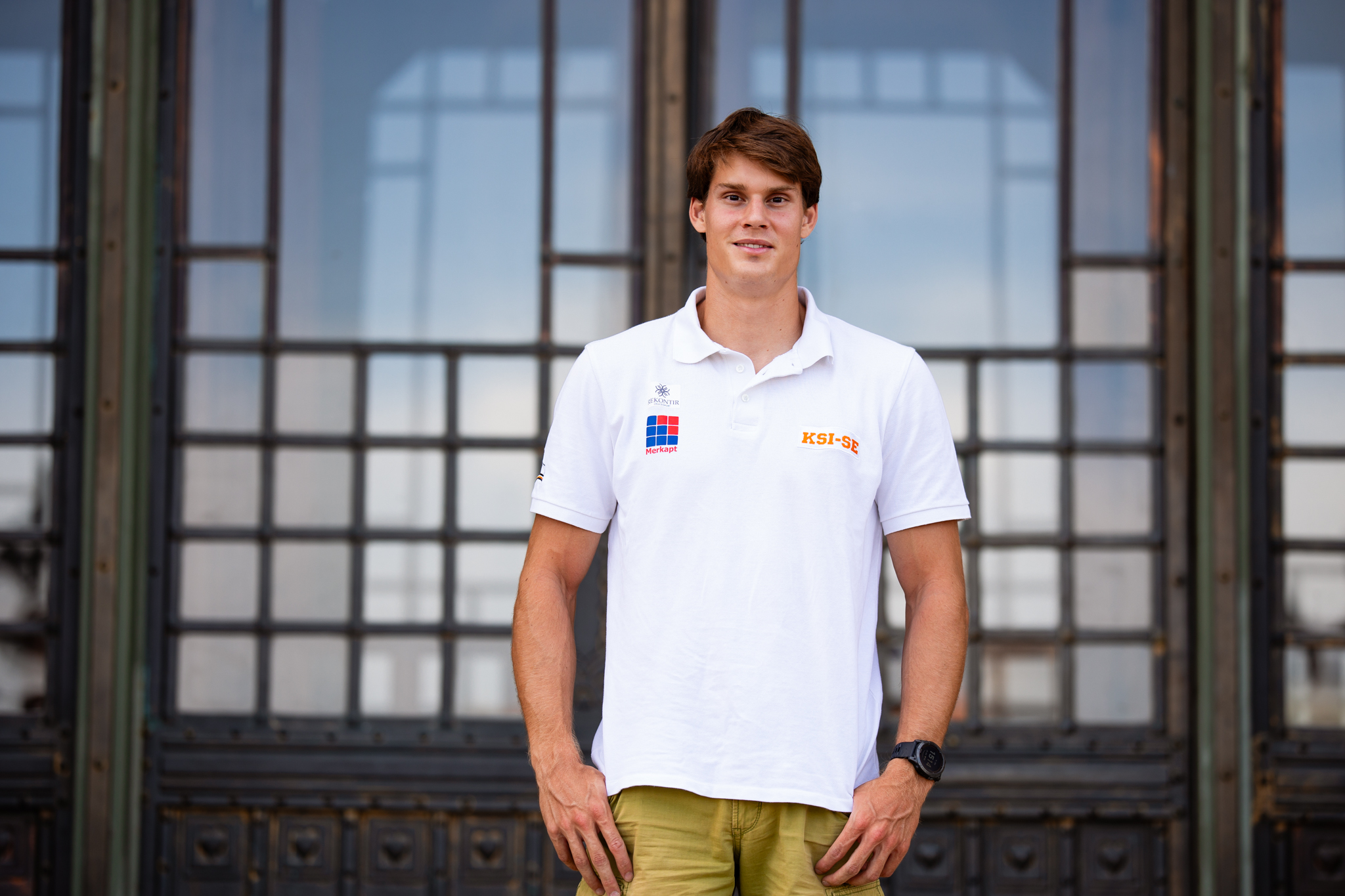
You are twenty-four years old, and you can have at least one more Olympics in your career if that’s what you want. Or even two.
I hope there will be at least one more. In this sport, the length of the active period varies, many people reach the age of 30. Zoltán Kammerer was a good kayaker even at the age of 40, but he’s a big exception in this regard. I’m sure I will feel when it gets harder for me. And then it’s really Physics’ turn.
| Ádám Varga was born in Budapest in 1999. He started kayaking at KSI, achieved his first major success at the 2016 World Youth Championships, winning the K2 gold medal in the 1000 meters. In the same year, he won the marathon world championship among the juniors in singles and doubles. In 2017, he finished second in the European Youth Championship in K1 1000 meters, and won in the world championship in K1 500 meters. He defended his championship title in the marathon world championship in his age group. In 2018, he was already competing in the adult European Championship, finishing 5th in K4 1000 meters and 11th in 5000 meters races. In the 2019 U23 world championship, he won the bronze medal in K1 1000 meters and the silver medal in the K4 500 meters. He placed 5th in the K2 1000 meters at the 2021 European Championships, then finished second in the K1 1000 meters at the Tokyo Olympics. This year, he won the European Championship in the K1 500 and finished 2nd in the 5000 meters. He will compete in the K1 1000 metres at the Paris Olympics this year. |
gp
